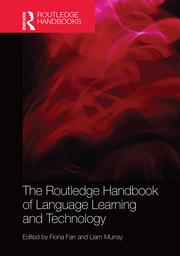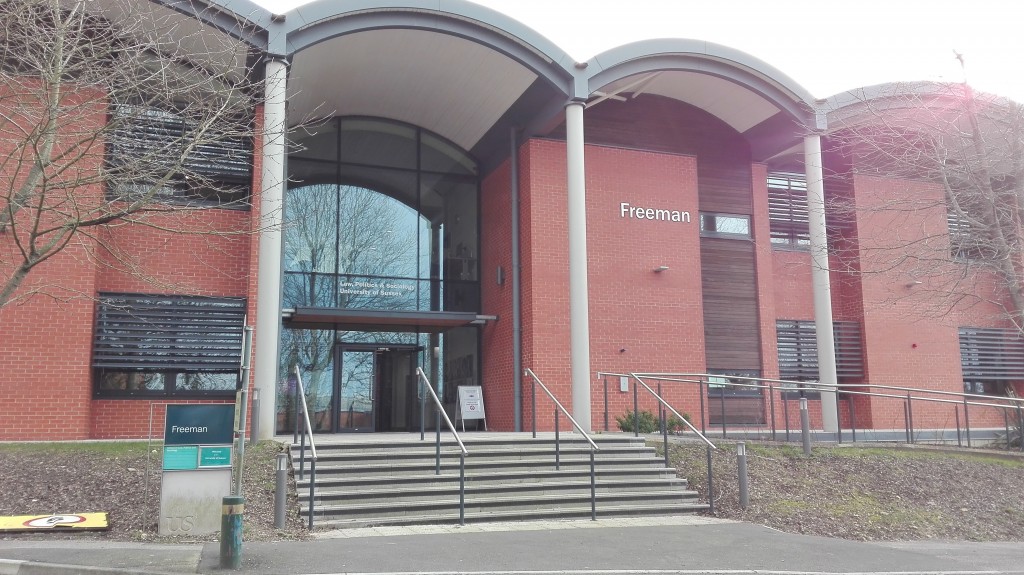Corpus Linguistics in the South 13 SCALE AND GRAIN IN CORPUS LINGUISTICS
University of Suffolk, Waterfront Lecture Theatre 1
Saturday 26 November 2016
Programme
10 – 10:45 Opening coffee/refreshments and discussion
10:45 Brief welcoming remarks
11 – 11:30 The Hillary Clinton emails: corpus linguistics meets the real world
Rachele de Felice, University College London
11:30 – 12:00 Grain and scale: Looking at small data sets in broader sociocultural contexts
Colleen Cotter, Lisa McEntee-Atalianis and Danniella Samos
Queen Mary University of London and (LMA) Birkbeck, University of London
12:30 – 1:00 Obviously native: uses of adverbs in native and advanced learner language in spoken English Pascual Pérez-Paredes and Camino Bueno
University of Cambridge and (CB) Universidad Pública de Navarra
Break for lunch at cafés surrounding Waterfront building
2:00 – 2:30 Corpus linguistics and news representations: a corpus-assisted framing analysis of mental health and arts participation messages in the British press
Dimitrinka Atanasova and Nelya Koteyko, Queen Mary University of London
2:30 – 3:00 From colony to text: the Twitter essay as a theoretical and corpor(e)al challenge
Diana ben-Aaron, University of Suffolk
3:00 Brief closing remarks
If you would like to attend, please RSVP to Dr Diana ben-Aaron at d.ben-aaron@uos.ac.uk by 24 November. As always with CLS, there is no charge for participants. Light refreshments will be provided and an informal dinner meetup will be arranged for those arriving on Friday night.
The University of Suffolk is located on the Ipswich waterfront, within walking distance of the train station (ca 75 mins to London) and National Express coach stop. A scalable map, campus map and links to other information are here. There are a number of inexpensive hotels in Ipswich and we are happy to advise on practical arrangements.
*********************************
First post below
We are pleased to announce that the 13th Corpus Linguistics in the South event will take place on Saturday, 26 November 2016, at the University of Suffolk in Ipswich. For this session we would like to continue the focus on theory and methodology, asking:
– How do we select data sets and units of analysis?
– How is this influenced by scale of resources?
– How does this affect our findings?
– How do these objects of study relate to speaker/reader interactions with the original texts?
– How can we ensure that our analyses bear relevance to these interactions?
Corpus work has enabled the identification of new linguistic objects of study, as well as the re-examination of pre-existing categories in syntax, semantics, varieties and genres. Advances in data processing have enlarged our ability to investigate new categories. However, if corpus linguistic findings are to be relevant for other branches of linguistics, we need to problematise the correspondence between our methodological choices and the way the texts are used in situ by users or populations. This is particularly relevant as digital texts enable new kinds of displays and uses. With some kinds of new media, such as games, basic default units of analysis may be difficult to define. Even with more traditional texts there are questions to be asked about our categories, such as what is a meaningful unit of time in diachronic research?
These questions offer the opportunity to dig deeper into previous CLS topics, such as small and large corpora as discussed at Sussex last spring, as well as public and professional discourse, and social media. Thus we welcome proposals which respond to any of the questions above, or other questions relating to the construction and role of categories in our analysis:
Presentations should be 30 minutes in length, and will be followed by time for discussion. If you would like to participate, please send a short (250 word) abstract by 15 October tod.ben-aaron@ucs.ac.uk, as an attachment without name or affiliation. Acceptance of submitted abstracts will be notified at the beginning of November.
Contact person:
Dr Diana ben-Aaron
Lecturer in English
University of Suffolk, Neptune Quay, Ipswich IP4 1QJ
@diana180 | d.ben-aaron@uos.ac.uk | www.uos.ac.uk/english



